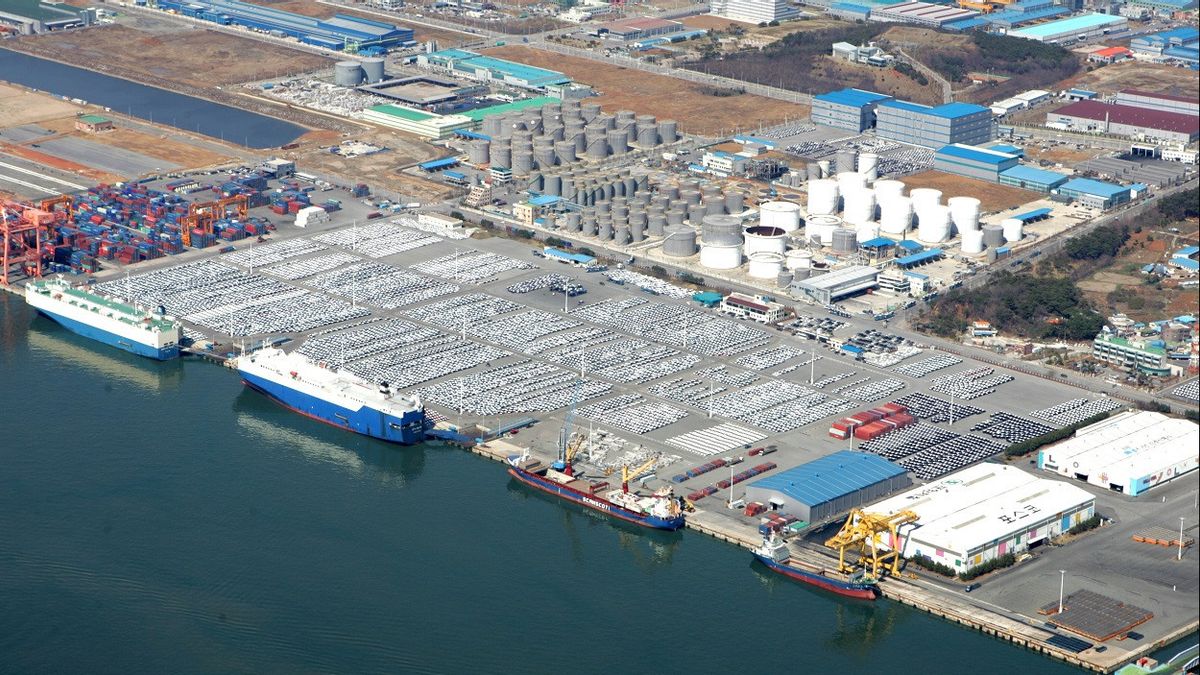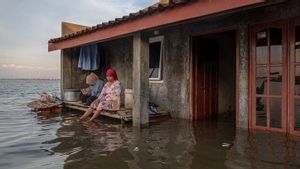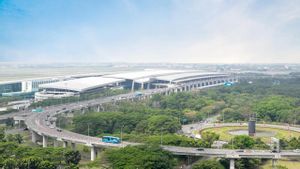JAKARTA - South Korea's fifth-largest port will be 100 percent hydrogen-based from 2040, as part of the central government's efforts to neutralize carbon emissions, joining international efforts to slow global warming.
Pyeongtaek-Dangjin Port on the west coast has been selected to be the first major port in Ginseng Country to produce net-zero carbon emissions. This is like the agreement of about 10 government agencies, state companies, private companies to business associations.
Those who signed the agreement to neutralize carbon emissions on July 26 are Pyeongtaek Marine and Fisheries Regional Office, Gyeonggi Provincial Government, Pyeongtaek City Government, Korean Gas Company, Pyeongtaek Gyeonggi Port Company, Korean Gas Technology Company, Hyundai Motor Company, Shipbuilding Engineering and Offshore Korea, Hyundai Glovis, and the association of business operators of the national industrial complex in Poseung Pyeongtaek.
The upgraded port is expected to be able to produce, import, store, transport and use hydrogen through its own ecosystem, according to the Port Policy Division under the Port and Port Bureau of the Ministry of Marine Affairs and Fisheries, citing the Korea Times July 29.
The Pyeongtaek-Dangjin Port was chosen among other major South Korean ports because it is close to a liquefied natural gas (LNG) plant. The facility could be used to produce and transport hydrogen to nearby cities and industrial complexes, as well as to fuel vehicles, according to the ministry.
"The Pyeongtaek-Dangjin Port is equipped with adequate infrastructure to produce, transport, and use hydrogen," said Maritime Affairs and Fisheries Minister Moon Seong-hyeok.
"With the latest agreement, the port will become a model for hydrogen-based ports and pave the way for other ports to deploy their own hydrogen ecosystem," said Minister Moon.
Parties participating in the new project will begin constructing hydrogen complexes within the port, expand hydrogen vehicles for service there and establish facilities for importing hydrogen, testing hydrogen-fueled ships, rail, and port facilities.
Starting with the Pyeongtaek-Dangjin Port hydrogen program, the ministry plans to make another major port 100 percent hydrogen-based by 2040, building a national port network that runs under the same ecosystem. This plan was originally introduced during the '2020 P4G Seoul Summit' in May.
At the international climate change forum, the South Korean Government also revealed its plans to design a supersize container ship fueled by ammonia, develop a smart port at the Port of Rotterdam in the Netherlands in collaboration with Daewoo Shipbuilding and Marine Engineering Korea, reduce plastic waste in the oceans and cooperate with other countries. ASEAN countries to monitor marine debris.
SEE ALSO:
To note, in 2020, Pyeongtaek-Dangjin Port was ranked fifth in South Korea in terms of shipping volume which amounted to about 106,845 tons. Busan topped the rankings, followed by the ports of Gwangyang, Ulsan, and Incheon. In the same year, Pyeongtaek-Dangjin Port handled about 1.26 million import and export vehicles, the most in the country.
The English, Chinese, Japanese, Arabic, and French versions are automatically generated by the AI. So there may still be inaccuracies in translating, please always see Indonesian as our main language. (system supported by DigitalSiber.id)


















